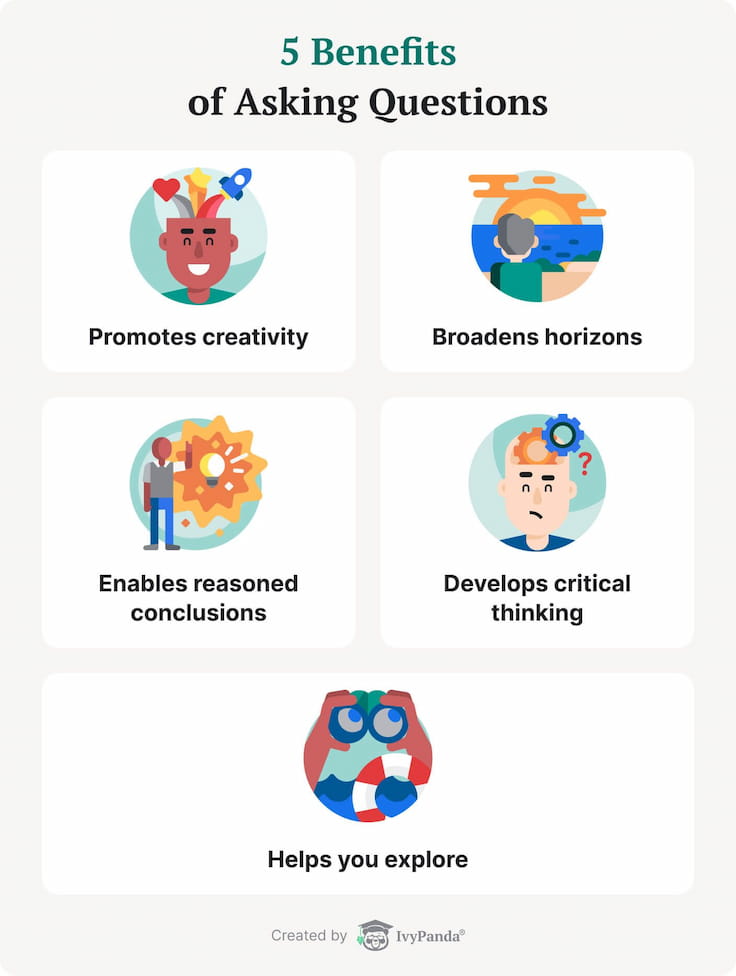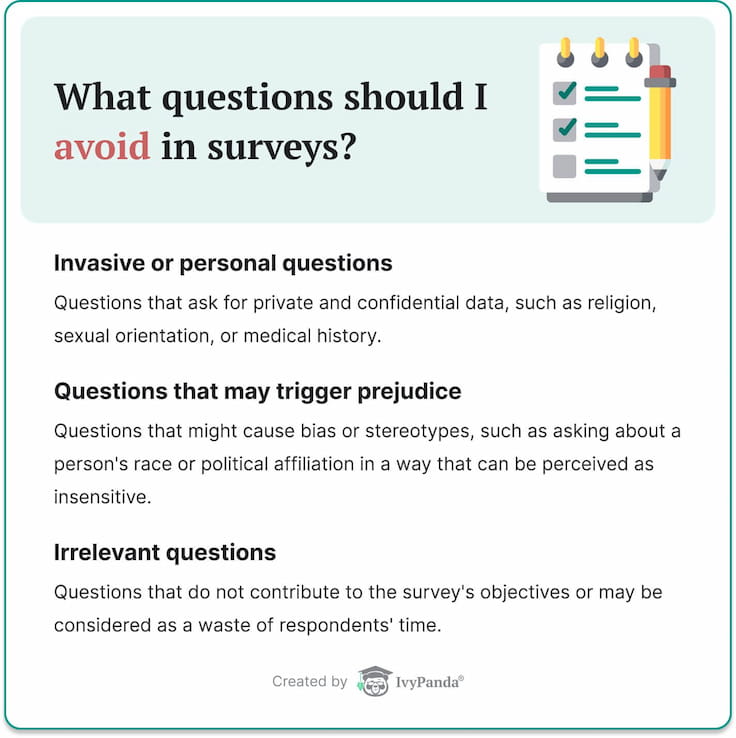Question Generator from Text for Students
The Online Question Generator from Text helps you quickly turn any passage into study or quiz questions. Whether you’re preparing for a test or reviewing material, this tool makes it easy to create focused questions that keep you engaged with the content.
🪄 Question Generator from Text Online: 5 Advantages
Want to get better acquainted with our tool? Take a look at its capabilities:
💡 Question Generator from Text Online & Creative Ideas to Use It
A question generator can be valuable for various purposes, such as learning, brainstorming, or research. Here are some inspiring ideas for using our question maker:

- Quizes & Tests. The tool can extract key information from any text you want. So, it's very convenient to make questions for tests and quizzes. Afterward, you can modify them and make, for example, multiple-choice questions.
- Brainstorming. The questions you generate with our tool may give you something to consider for new insights and perspectives. Use them in your brainstorming sessions for better results.
- Research. Our instrument helps formulate clear and concise questions that allow for the collection of valuable data. You can use it to analyze and design research questionnaires or surveys.
- Studying. You can use our tool to craft questions for your assignments, create study guides and flashcards, or prepare for upcoming exams.
- Discussions. Finally, this instrument will allow you to prepare for discussions, debates, or classroom presentations.
🤔 Why Ask Questions?
We’ve all been told time and time again how important it is to ask questions—but why is that so? The reasons are quite simple! We have outlined them below:

- To help you explore.
It is essential to ask research questions as you formulate objectives, analyze problems, and draw conclusions. This will help you collect data to advance your research and find the answers you seek. - To promote creativity.
By asking questions about a piece of writing or research, you are trying to understand it on a deeper level. You may think of other ways to solve the problems described there or discover other cause-and-effect relationships. Questions can lead you to innovative solutions and diverse ideas. - To broaden your horizons.
Questions help look at a situation from a different angle. They encourage reflection and discussion. In turn, thinking about what you have read can open up new insights. - To enable reasoned conclusions.
People often tend to jump to impulsive decisions when they encounter new information. However, if you start asking questions about the data and its integrity, you will take a pause. By slowing down and thinking about the possible answers and different perspectives, you can put together a more balanced opinion and eliminate biases. - To develop critical thinking.
You need to ask questions after learning new material to be able to delve into the topic thoroughly. They will guide you in forming your thoughts and ideas, critically analyzing the material, and testing your beliefs.
🖊️ 7 Popular Questioning Techniques + Examples
It is helpful to distinguish between different types of questions, as each has a specific function and purpose. We suggest you look at some of them:
Closed or Polar Questions
A “yes” or “no” answer will be enough when answering a polar question. You need it to confirm or deny a statement or to warm up a discussion.
Example: Does this thesis statement reflect the content and purpose of the analyzed essay?
Probing Questions
This type of questioning helps us better understand a problem. Usually, it involves a series of questions that aim to get significant insights.
Example: How have you used qualitative and quantitative methods in your market research? In what ways does the mixing of these methods improve decision-making?
Loaded Questions
These are closed questions but with a twist. They already imply that the answerer will have to take the context of the question into account. For example, it can be used to force a person to confess something.
Example: Have you stopped cheating on your exams yet?
Open Questions
This question involves getting a detailed answer to encourage new ideas and active thinking. They typically are WH-questions.
Example: Why does the choice of gender positively affect a teenager's life?
Process Questions
A process question is suitable if you want to know a person's opinion on a topic. These are often used by interviewers and journalists.
Example: What conclusions would you draw from a research paper’s abstract?
Funnel Questions
A funnel type question is commonly a series of questions where you can go from general to more specific. It can also work the other way around.
Example: What would be a good title for this article? How does the headline you chose emphasize the goals of the study?
Rhetorical Questions
Such questions are designed to grab the reader's attention, invite reflection, and draw their conclusions. They don't require an answer.
Example: Who would have thought that the research process would lead us here?
Useful Survey Questions Tips
If you decide to use our generator to develop a survey, then be sure to use the tips in this section. We will show you how to create questions to achieve the goals of your investigation.

- Try to design questions so that they differ from each other. Repetitive questions make no sense and can even be annoying, especially if they are for a questionnaire.
- Make sure your questions are neutral and do not carry any bias. Try to be objective and not to sway the respondents to a particular side.
- Your questions should not be too simple or obvious. Such questions will not affect the study results and will only give you more irrelevant data to sort through.
- Avoid overly broad questions and phrasing. It is also a good idea to vary the different types of questions on your list. Variety will have a positive impact on your findings.
- Remember to avoid asking several questions in one. Focus on one problem to ensure you are not shifting the attention of the respondent.
- Use only relevant questions. It is better to have short questions related to the topic than vague and far-fetched questions that may cause misunderstandings.
- Test your prepared questions on yourself, friends, or acquaintances. This way, you will realize how understandable they are. You will also recognize whether they will have the effect on your readers that you expect.
We hope we have inspired you to use this question generator from the text! You can also check out our FAQ section below or use our research question generator for your future assignments.
❓ Question Generator from Text – Free Tool FAQ
- Choose the type of question and what purpose it will accomplish.
- Ensure it is clear, specific, and appropriate to the topic.
- Pursue conciseness and grammatically correct wording.
- Ensure that your question invokes the desired information or response.
Updated:
🔗 References
- Question Levels and Questioning Skills. – Dr. R. Ouyang, University of North Florida
- Effective Questioning Techniques. – Nanyang Technological University
- Using Effective Questions. – Cornell University
- Asking Questions: Six Types. – The University of Waterloo
- 15 Reasons to Ask Questions. – John G. Miller, QBQ!
- Deeper Learning through Questioning. – Mary Ann Corley, W. Christine Rauscher, The LINCS